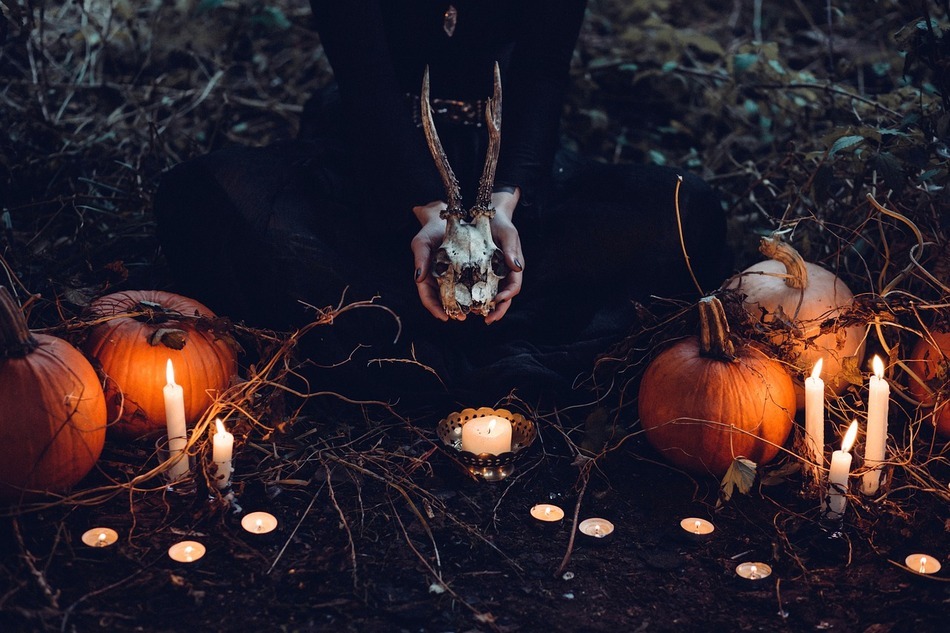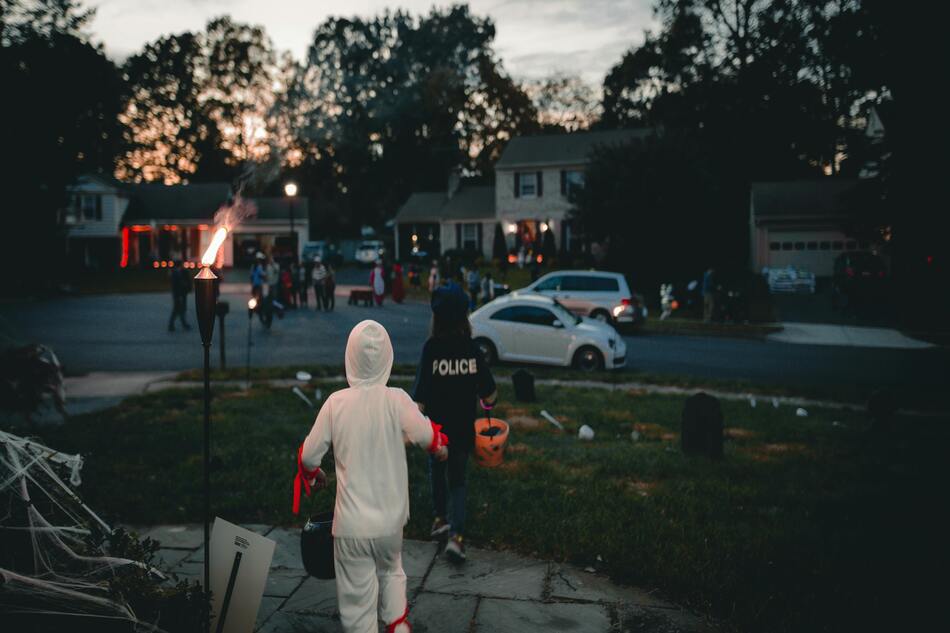Halloween is just around the corner, so before we get to planning our costumes and deciding where we want to go this year, we thought we could talk about the holiday itself for a bit. Of course, nothing we discuss should impact your enjoyment of the holiday, but it can make for an interesting conversation and learning a bit more about something you love is rarely a wrong choice. So, let’s try to answer – is Halloween pagan?
The Pagan Origins of Halloween
To talk about whether Halloween is pagan in origin, we must go way back, more than two millennia back, in fact, when the Celtic peoples were gearing up for their version of New Year’s Eve – only it wasn’t all champagne and fireworks. The Celts were an ancient people that likely (there are conflicting theories regarding this) originated somewhere in Western Europe, possibly around the 6th century B.C.
They soon spread all across Europe and Asia Minor and, over time, many differences emerged among the different Celtic tribes. What we do know with relative certainty is that the Celts were pagan, with regional differences regarding the specific gods they worshiped. For the purpose of our discussion, we don’t need to go into further details about the Celts, only to know that they were pagan.
To relate everything back to Halloween, the Celtic New Year didn’t start on January 1st, but on November 1st. This was the date that signaled the end of summer and the start of a long, cold winter, a season they often linked with death. The night before, on October 31st (the date we celebrate Halloween), the Celts celebrated a festival called Samhain (pronounced ‘sow-in’), where the line between the living and the dead got a little fuzzy.
They believed that during Samhain, the spirits of the dead came back for a visit. The unpleasant kind of visit. On the other hand, the presence of these otherworldly beings was thought to make it easier for the druids, the Celtic priests, to make predictions about the future. Since surviving the winter wasn’t exactly a given, these prophecies could be pretty comforting.
To honor the occasion, the Druids built massive bonfires around which people gathered around and tossed in crops and even animals as sacrifices to the gods. And because a good festival calls for a costume, the Celts donned outfits made from animal heads and skins, possibly for fun but also partly to get a peek at the future.
Once the party died down, they’d head back to their homes and light their hearth fires from the sacred bonfire, believing it would protect them from the dark, dangerous winter ahead. So, for now, we have the pagan festival of Samhain and our Halloween falling on the same data and sharing some similar customs and motifs.
Thus, is Halloween pagan? If the story ended here, we could probably say yes, however, as with all good stories, there are more chapters to tell.
The Christian Influence
Now, we need to talk a bit about some Christian holidays. Around 609 – 610 A.D., Pope Boniface IV dedicated a day to honor all Christian martyrs, known as All Martyrs’ Day. It was celebrated in May at first, but things took a turn when Pope Gregory III came along and expanded the festival to include all saints, not just martyrs. Oh, and he moved the date to November 1st.
Now, we get All Saints’ Day celebrated on November 1st, which is also called All Hallows’ Day – in Old English, hallow means holly and is synonymous with saint. Later on, All Hallows’ Eve was added (celebrated on October 31st), and later still All Souls’ Day (celebrated on November 2nd). These three days became a celebration known as Allhallowtide.
By the 9th century, Christianity was making waves in Celtic territories, and, as often happens when cultures meet, the older Celtic rites began to blend with these newer Christian traditions. All Souls Day was a day dedicated to honoring the dead and the customs closely mirrored the pagan Samhain, right down to the bonfires, parades, and dressing up, but now the costumes were saints, angels, and even a devil or two.
Over time, the name All Hallows’ Eve, the first day of Allhallowtide, morphed into the name we know today: Halloween. Thus, we could say that Halloween is Christian in origin, with some influence from the pagan celebration of Samhain. However, again, let’s not stop there.
Halloween in the US
Initially, Halloween wasn’t widely practiced in the Americas. In colonial New England, the relatively rigid Protestant beliefs didn’t exactly leave much room for spooky celebrations, although in some places, like Maryland and the southern colonies, Halloween customs were a bit more common. As various European settlers and native American traditions blended together, a uniquely American version of Halloween started to take shape.
Early celebrations included community gatherings that celebrated the harvest. People would gather to swap stories about the dead, tell fortunes, and, of course, dance and sing. This version of Halloween was still fairly low-key and harvest-focused. Then, in the mid-19th century, when waves of new immigrants, especially the Irish fleeing the Potato Famine, began arriving, Halloween started to spread across the country.
The Irish brought their traditions with them, including pranks. So, by the late 1800s, Halloween was gaining steam, although some of the pranks were becoming a bit more… intense. Vandalism, property damage, and the occasional physical altercation weren’t exactly unheard of, leading to concerns about how this ‘harmless’ holiday might be getting out of hand.
As a result, in the 20th century, people were encouraged to change the celebrations a bit and make the holiday more community- and kids-oriented by encouraging kids to go trick-or-treating and overall focusing the festivities on the children. This also meant that the truly scary aspects of the older Halloween celebrations were discouraged and it lost some of its religious overtones, so the modern, more fun-focused interpretation evolved.
And that is the form of Halloween as we know it today in the US.
In Short – Is Halloween Pagan?
We’ve talked a lot, but still haven’t truly answered the initial question, have we? Is Halloween Pagan? Well, it’s hard to say. It could, and likely does, have some pagan origins. Some modern pagans, like the Wiccans, celebrate it as Samhain, the start of the New Year. On the same note, it has Christian origins, and Christians still celebrate All Hallows’ Eve on October 31st.
Ultimately, it’s doubtful the holiday has just one origin point. More than likely, it is a mix of celebrations from different cultures and traditions. And what could be more American than that? The current version of Halloween is a fun holiday where you can dress up and party to your heart’s content, regardless of its origins!
While we’re on the topic of dressing up for Halloween…
Any and All Halloween Costumes You Can Think of in One Place
At Hollywood Toys & Costumes, we simply love celebrating Halloween and we want to share that excitement with you. Just imagine your ideal costume and you can likely find it in our store, in addition to a whole host of Halloween props and decorations. You can place your order online and we will ship the items to your address or visit our store at 6600 Hollywood Boulevard to make your purchase in person and experience the atmosphere of one of Hollywood’s oldest stores! And don’t forget to contact us if you need any assistance, we’re more than happy to help!




